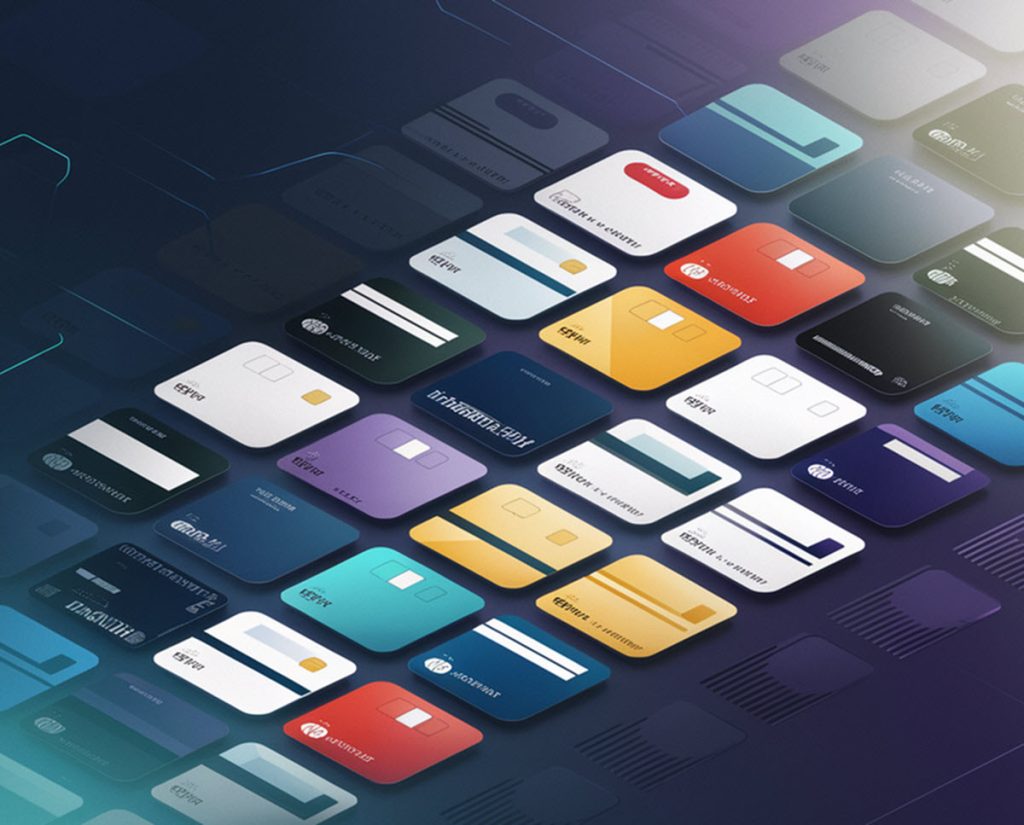A credit card is a financial tool issued by banks or credit unions that allows cardholders to borrow funds up to a certain limit for purchasing goods and services. The cardholders must repay the borrowed amount, and will typically also pay interest.
Different credit cards come with different rules, e.g. regarding how interest is charged, so it is important to read the fine print before applying for and using a credit card.
Credit cards are a versatile financial tool that can provide convenience, financial rewards, and (in some countries) a way to build credit when used responsibly.
By understanding the different types of credit cards and their features, you can select the right card to meet your financial goals and lifestyle. Remember to manage your credit card wisely to maximize the benefits.

Key Features of Credit Cards
- Credit Limit: The maximum amount you can borrow on the card. When you have had your card for a while and used it responsibly, the issuer might offer to increase this amount.
- APR: The Annual Percentage Rate (APR) charged on unpaid balances.
- Grace Period: The time frame within which you can pay your balance in full to avoid interest charges. There are many credit cards available where you will not pay any interest if you repay the borrowed amount in full before the bill becomes overdue. If you do not pay in full, i.e. carry any balance on to the next payment period, you will pay interest on that amount.
- Rewards: Incentives, e.g. cashback, points, or miles earned for purchases made with the card.
- Fees: Charges such as annual fees, late payment fees, cash withdrawal fees, and foreign transaction fees.
Types of Credit Cards
There are many different credit cards to chose from, and below you will find a few examples of common credit card types. It is always important to learn the terms and conditions of the specific credit card you are interested in, because not all credit cards within the same category are the same. Also note that many credit cards belong to more than one of the categories below.
- Standard Credit Cards
- Basic cards.
- Suitable for straightforward borrowing and building credit.
- Rewards Credit Cards
- Offer points, cashback, or travel miles for purchases.
- Ideal for maximizing value on everyday spending.
- Secured Credit Cards
- Require a security deposit as collateral.
- Designed for building or rebuilding credit.
- Balance Transfer Credit Cards
- Offer low or 0% introductory rates on balance transfers.
- Can be great for consolidating and paying off existing debt, i.e. you replace old debts with a new debt.
- Student Credit Cards
- Tailored for students. Students tend to have small incomes and limited credit history.
- Often have low credit limits.
- Often have rewards geared towards students.
- Business Credit Cards
- Designed for business expenses. Will often include features like expense tracking and higher credit limits.
- Suitable for small business owners and entrepreneurs.
Benefits of Using Credit Cards
- Convenience
- Easy to use for online and in-store purchases.
- Widely accepted worldwide. Exactly how widely accepted it is will depend on which network it belongs to.
- Building Credit
- Responsible use can help improve your credit score (in parts of the world where there a credit score system is in place, e.g. the United States). Good credit opens doors to better loan rates and financial products. Even if you normally dislike buying this on credit, having a good credit score can be very important if you want to purchase something bigger, e.g. get a house mortage.
- Rewards and Benefits
- Earn cashback, points, or travel miles on everyday spending.
- Access to perks like travel insurance, purchase protection, and extended warranties.
- Safety and Fraud Protection
- Safer than carrying cash.
- Fraud protection and zero-liability policies for unauthorized transactions. (As always, terms and conditions apply.)
- Grace Period
- Allows you to borrow money interest-free if the balance is paid off within the billing cycle.
Drawbacks of Using Credit Cards
- High-Interest Rates
- Carrying a balance can lead to significant interest charges.
- Fees
- Annual fees and other fees can add up. Evalutate if the fees for this credit card are worth it, or if you would be better off with another card. Choose cards with fee structures that match your usage habits.
- Debt Risk
- Easy access to credit can lead to overspending and debt accumulation. It is important to budget and use credit responsibly.
- If you can not pay off the full balance, you must at least do the minimum payment each month – otherwise you will incurr late fees and the debt can go to collections. Not paying at least the minimum each month can be very bad for your credit score / credit worthiness. You also risk ending up in a debt spiral, where late fees and interest-on-interest keep enlarging your debt.
How to Choose the Right Credit Card
- Assess Your Needs
- Determine your primary use for the card: rewards, building credit, or managing debt.
- Compare Features
- Look at interest rates, fees, rewards, and benefits.
- Consider the card’s terms and conditions carefully.
- Check Your Credit Score
- Your credit score (or credit worthiness) can influence your eligibility and the terms you receive.
- Aim for cards that match your credit profile.
- Read Reviews
- Research user experiences and expert reviews.
- Understand the card issuer’s customer service reputation.
- Evaluate Rewards Programs
- Choose rewards that align with your spending habits.
- Consider the redemption options and limitations.
- Consider having more than one credit card
- Instead of settling for a lukewarm compromise, you might be better off with more than one credit card to maximize their respective advantages. You might for instance see that one credit card is best for travelling internationally, while another is better for your needs at home.
- Be careful; you do not want to get stuck with high annual fees or other mandatory fees for several credit cards.
This article was last updated on: August 5, 2024

